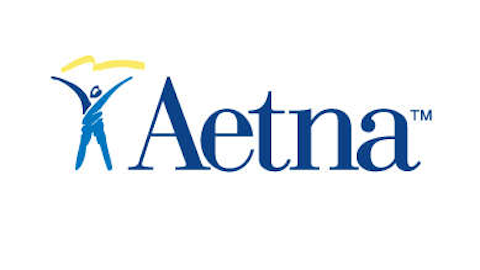Could UnitedHealth Group Inc. (NYSE:UNH) stock jump 40% over the next two years? A recent article in Barron’s says it could happen. Shares of the large insurer have gained 20% over the past year. All UnitedHealth would need to do is maintain those growth levels for another couple of years.
A lot can happen to derail both present and prognosticated momentum, though. Here are three reasons why UnitedHealth Group Inc. (NYSE:UNH) might stall more than surge.
1. Earnings growth
UnitedHealth Group Inc. (NYSE:UNH) has enjoyed a terrific run over the last few years. Those gains have been powered by solid earnings growth. However, that growth now appears to be tapering off.

UNH Net Income TTM data by YCharts.
Over the last five years, UnitedHealth Group Inc. (NYSE:UNH) saw annual earnings growth of almost 15%. Analysts project that the company will experience lower annual growth rates close to 11% over the next five years. For this year, UnitedHealth is expected to grow earnings by only 3%. The projections increase to 7% next year, but that’s still a far cry from recent levels.
2. Valuation
The hefty gains for UnitedHealth Group Inc. (NYSE:UNH) have also resulted in a hefty relative valuation. The company’s trailing price-to-earnings ratio of around 13 roughly matches that of Aetna Inc. (NYSE:AET) but stands higher than other major rivals. Humana Inc (NYSE:HUM) has a P/E multiple of 9.4. WellPoint, Inc. (NYSE:WLP)‘s P/E ratio is 9.7.
Using another valuation metric yields similar results. UnitedHealth’s enterprise value/EBITDA is 7.2. Aetna Inc. (NYSE:AET) lags behind with an EV/EBITDA of 6.2. The values for Humana Inc (NYSE:HUM) and WellPoint, Inc. (NYSE:WLP) are much lower — 2.4 and 3.5, respectively.
Of course, there are plenty of reasons why UnitedHealth warrants a higher valuation than some of its peers. The fast-growing Optum business unit, which includes pharmacy benefits management and health information technology services, ranks near the top of the list. Neither Aetna, Humana, nor WellPoint boasts a division as strong as Optum.
However, UnitedHealth isn’t just pricey compared to some of its rivals. It’s expensive compared to its own recent history.

UNH EV / EBITDA TTM data by YCharts.
The key issue for UnitedHealth is that valuation levels are the highest in years at the same time that earnings growth is expected to taper off. That’s not a recipe for huge stock gains.
3. Health care costs
Some point to slowing growth health care costs as encouraging signs of a new trend. However, even optimists admit that much of this improvement is due to the recession and its aftermath.
There are several reasons why the recent good news could dissipate in the near future. The economy could improve, resulting in individuals spending more money on health care. If Obamacare results in millions of new people with health insurance, the demand for health care could rise — driving costs upward. Fewer big-dollar drugs are going off-patent than in the last few years. We also can’t forget the baby boomer generation entering the years that tend to require more health care.
UnitedHealth is already seeing some higher costs. The company reported first quarter net earnings of $1.2 billion, down from $1.4 billion the year before. According to UnitedHealth, a higher medical care cost ratio was to blame. As costs go up, it becomes more difficult for insurers like UnitedHealth to achieve strong earnings growth.
Positive realism
My view is that UnitedHealth isn’t likely to climb 40% over the next couple of years for the reasons listed above. I suspect the stock could slow down somewhat. However, I’m not negative about UnitedHealth over the long run. The company’s scale as the nation’s largest health insurer, combined with nice growth opportunities with Optum and a 1.7% dividend yield, make it attractive. Two years from now isn’t as important as 20 years from now.
The article 3 Reasons UnitedHealth Could Lose Steam originally appeared on Fool.com and is written by Keith Speights.
Fool contributor Keith Speights has no position in any stocks mentioned. The Motley Fool recommends UnitedHealth Group and WellPoint. The Motley Fool owns shares of WellPoint.
Copyright © 1995 – 2013 The Motley Fool, LLC. All rights reserved. The Motley Fool has a disclosure policy.






